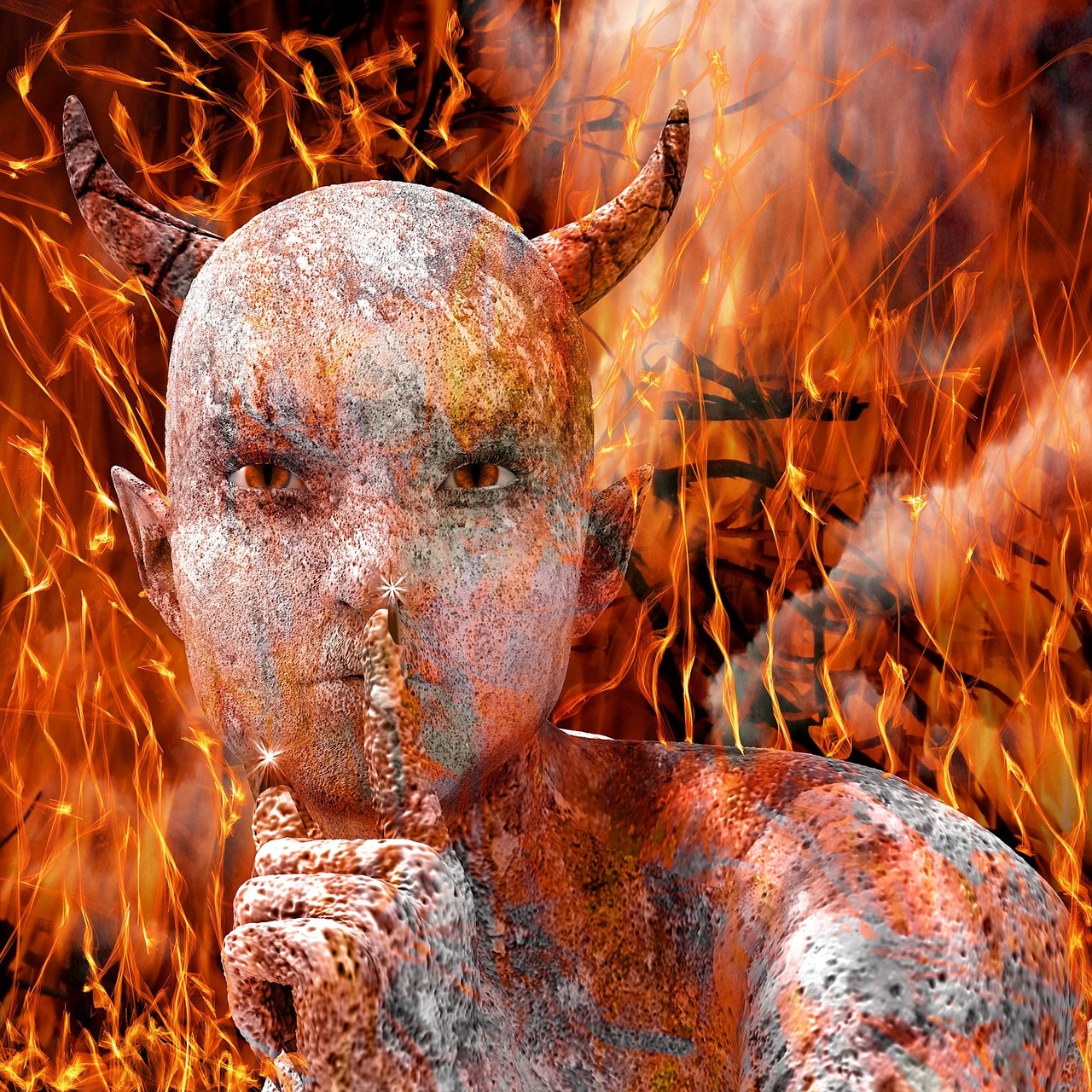 Submitted by Aesch Mezareph on
Submitted by Aesch Mezareph on

pixabay.com
Why do bad things happen? Or more specifically, if there is a God, and He is all-knowing, all-powerful and completely good, why does He allow evil to existand for good people to suffer because of it? This is the crux of the “problem of evil,” an intellectual and moral dilemma theologians and philosophers have grappled with and debated for millennia.
Can God and evil co-exist – or does the very existence of evil in our world mean there is no God? This isn’t solely a Christian conundrum. In fact, the first argument for why the existence of evil proves that God cannot exist dates back to the Greek philosopher Epicurus in the 3rd century BCE. Epicurus argued, in modus tollens format:
- If P then Q: If an all-powerful & perfectly good god exists, then evil does not.
- Not Q: There is evil in the world.
- Therefore Not P: Therefore, an all-powerful & perfectly good god does not exist.
Though Epicurus existed well before the beginnings of Christianity, Christian theologians have debated and tried to account for both the existence of God and the presence of evil ever since. According to Christian belief, God is an entity that deserves their worship, obedience, and devotion. The Christian God is described as omnipotent (all-powerful), omniscient (all-knowing), omnipresent (all-present without separation or division), aseitic (self-originating, the primary source), and without moral flaw.
If that description is true, it’s difficult to reconcile the existence of evil in the world. A perfectly good God should logically strive to prevent evil. If He is omniscient, he should know all the ways in which evil can originate. If He is omnipotent, He has the power to prevent evil from existing. In other words, an entity who knows how evil can enter the world, who can prevent evil from doing so, and who, being wholly good, would want to do so, should, by nature, prevent evil from existing.
How to Account for God’s Existence and Evil?
When debating through formal logic, you have two choices for how to argue against the claim being made.
- Attack validity of argument so that the claims are invalid.
- Explain that premises/assumption is not true, so the argument is unsound.
If you want to attack the validity of the argument (#1), you would have to either:
- Accept that God is limited or somehow flawed.
- Deny the world is imperfect or that evil exists.
Most Christian theologians choose not take this route – although some argue that God’s power is constrained by the natural laws that govern the system He has created. In other words, God is not able to do “anything at all.” Rather, He can only do “anything that can be done.” A simple example of this would be that God can’t make a two-sided triangle. If He made a two-sided object, it would not be called a triangle because by our naming system, triangles must have three sides. However, most theologians prefer to focus their efforts on #2, and attempt to prove the underlying assumptions are unsound.
Christian Theodicies for the Problem of Evil
A theodicy is an attempt to offer a framework for how God and evil can co-exist. A sound theodicy must take into consideration the different types of evils:
- Individuals who do bad things (intentionally or unintentionally)
- Societies who do bad things (intentionally or unintentionally)
- Destructive natural events that occur without human input
The first two are considered “moral evils,” and involve a perpetrator who rebels against the moral or social order, engages in a vice, or commits an act that leads to harm, suffering or pain. The motivation may be intentional, or the action may have unintended “evil” consequences.
The third, a “natural evil,” is not the result of human intervention and only has victims, not perpetrators (e.g. hurricanes, cancer, earthquakes, birth defects, disease epidemics, etc.) If you believe in God and you believe that God has the knowledge and power to stop these events if he wanted to, then why doesn’t He do something about these natural events that cause great destruction and suffering? Shouldn’t a God, who we deem worthy of worship and adoration, have a moral responsibility to protect his creation against evil?
Christian theologians have posed a number of theodicies to explain how both God and evil can exist. The most compelling involve:
- Evil is a byproduct of original sin and therefore not connected with God
- Evil and suffering are required for personal and spiritual growth
- Evil is the result of free will – God’s creations choose to disobey Him
Theodicy 1: Evil Isn’t God’s Doing
Augustine of Hippo (354 to 430 AD) was the first to pose this theodicy by explaining that evil exists as a corruption of goodness and therefore cannot be attributed to God. According to Augustine, evil entered the world as a punishment for Adam and Eve’s disobedience. Because humans inherited this original sin from Adam and Eve, evil continues to maintain a presence in the world but God should not be held accountable for its consequences.
Critics argue against this reasoning by saying that if God is omnipotent, He should be able to control his creations’ behaviors. If He cannot, this leads to a form of dualism in which evil is wholly separate from God – and therefore, God must not be omnipotent. This belief is very similar to the good vs evil dichotomy presented in Zoroastrianism.
Theodicy 2: Evil is a Logical Necessary for “Free Will” and “Soul-Making”
This theodicy was first posed by Irenaeus (died ca 202) and later collated into a cohesive theodicy by John Hick in the 20th century. This theodicy argues that evil is necessary for human spiritual growth. There can be no good without evil because evil is the polar opposite of good. To understand good, one must also understand evil.
Irenaeus believed that humans were made in the image and likeness of God, so they have the potential to achieve moral perfection. However, in order to achieve this state, humans must have free will to choose to be morally good. Evil, therefore, is a necessity. God allows evil to exist because humans can’t become virtuous – and choose goodness – without experiencing hardships and troubles. Hick called this experience “soul-making.”
Critics argue that if evils are punishments to make things right and serve as life lessons, why doesn’t God target those who seem to be in poor spiritual health and could use a dose of soul-making? Also, if evils are punishments, does that absolve us of our moral responsibility to prevent evil? Are we denying someone the opportunity for “soul-making” if we stop evil from happening?
Another challenge to the “soul-making” argument involves why so many evils seem to be overly harsh or destructive. If God loves us like a Father loves his children, why are his punishments so heavy-handed? And why do innocents – like infants – suffer when they do not yet have the ability to choose good over evil?
In response to free will, critics argue: if evil is a necessary condition for human freedom – people are free to choose to do good or evil – does this mean all evils of the world are freely chosen? What about larger evils like rape and murder that decrease the freedom of those who suffer the evil? Why doesn’t God intervene to prevent the harmful consequences of bad moral decisions? Or why doesn’t he make moral actions pleasurable while immediately punishing immoral acts? This would make it much easier to choose to act morally while offering direct feedback – punishment – for actions God considers to be bad behavior.
Why Do Natural Evils Exist?
Natural evils present another challenge to the question of free will – should all earthquakes, disease, and volcanic eruptions be considered punishment for bad human actions? If so, why do human infants or non-humans also suffer?
This brings up the logical possibility of nonhuman spirits such as Satan, fallen angels, or demons, who also have free will and could also be responsible for the evils of the world. Perhaps anything that is considered a “natural evil” could be a moral evil committed by supernatural beings.
The drawback to this argument is that it leans more towards Zoroastrian dualism where God’s will is opposed by supernatural adversaries working towards destruction or corruption rather than true monotheism where God is omnipotent.
While free will may explain moral evils, each person will have to assess whether its arguments are strong enough to account for natural evils and large-scale moral atrocities. Perhaps because humans have limited knowledge and understanding of God’s ultimate plan, it may be impossible to come up with a fully rational and plausible explanation for the existence of evil in the world.
Read more @ http://www.deliriumsrealm.com/why-bad-things-happen/
Reference
- God by Timothy A. Robinson
- Philosophy: Contemporary Perspectives on Perennial Issues by E. D. Klemke
- Philosophy of Religion by John Hick
- God, Freedom, and Evil by Alvin Plantinga
- Theodicy – Essays on the Goodness of God, the Freedom of Man and the Origin of Evil by Freiherr von Leibniz
- Teaching Company: Philosophy of Religion by James Hall
- 933 reads